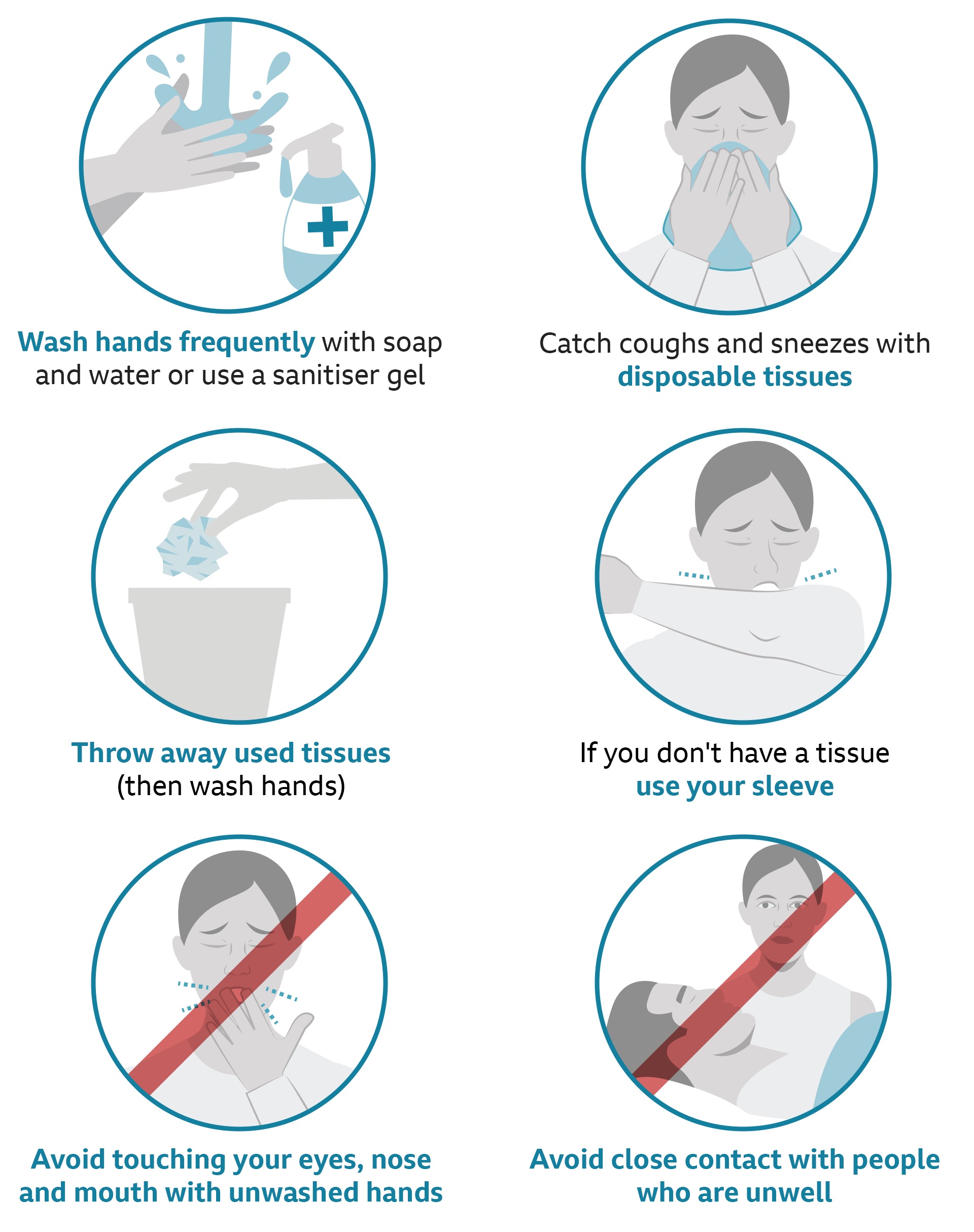Coronavirus (COVID-19)
Novel coronavirus (COVID-19) is a new strain of coronavirus first identified in Wuhan City, China. It is a new respiratory illness which affects lungs and airways that has not previously been seen in humans. Generally, coronavirus can cause more severe symptoms in people with weakened immune systems, older people, and those with long-term conditions like diabetes, cancer and chronic lung disease.
The latest information on symptoms of Coronovirus infection and NHS advice can be found here.
Stay at home if you have coronavirus symptoms
Stay at home for 7 days if you have either:
- a high temperature
- a new, continuous cough
|
Stay indoors and avoid contact with other people (as you would with the flu):
|
Please use the 111 online coronavirus service if:
- you feel you cannot cope with your symptoms at home
- your condition gets worse
- your symptoms do not get better after 7 days
Advice in other parts of the UK
- Scotland: call your GP surgery or 111 (NHS 24) if it’s closed
- Wales: call 111
- Northern Ireland: call 0300 200 7885
Stay at home advice
It’s important to stay at home and self-isolate to stop coronavirus spreading.
Read the stay at home guidance.
How is coronavirus spread between people?
Because it’s a new illness, we do not know exactly how coronavirus spreads from person to person, but similar viruses spread by cough droplets.
It’s highly unlikely coronavirus can be spread through packages from affected countries or through food.
Treatment for coronavirus
There is no specific treatment for coronavirus. Antibiotics do not help, as they do not work against viruses.
You’ll need to stay in isolation away from other people until you’ve recovered.
How to avoid catching or spreading coronavirus
Like the common cold, coronavirus infection usually occurs through close contact with a person with novel coronavirus via cough and sneezes or hand contact. A person can also catch the virus by touching contaminated surfaces if they do not wash their hands.
Everyone is being reminded to follow Public Health England advice to:

